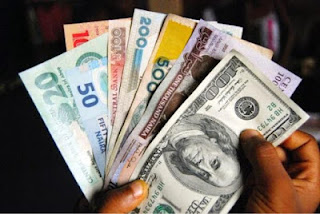Nigeria, a country of over 170 million people, is one that, after many decades, oil continues to remain its major source of revenue generation – about 95 per cent. Today, the “once upon a time” glowing commodity is no longer as juicy as it used to be say back in the mid-2014. Fallen by more than 65 per cent from around $110 per barrel to less than $30 currently. The persistent value depreciation of the naira has been generating concerns from all corners of the country, especially, because of its crippling impact on the economy generally.
Uncontrolled demand for the foreign exchange as a result of import dependency of the economy, artificial value jerks by the controllers of the nation’s economy, zero commodity export and of course the dwindling price of oil, are among the reasons given by analysts for naira depreciation. Now, despite the gap between the increasing demand for foreign currency and the available, saleable forex, the Central Bank of Nigeria in a bid to maintain balance, has steadfastly continued to keep its official exchange rate low and resisting pressure from both local and international powers to devalue the naira.
Not only is Nigeria’s main export commodity experiencing a sharp decline in demand, the concomitant fall in its prices in the international market has made the nation’s earnings equal to nothing. The huge drop in the price of crude oil from my research is traceable to the geopolitical tensions along critical trading routes between Western powers and Russia, Iran and Saudi Arabia as well as the balancing of monetary policy by the United States of America’s Federal Reserve Bank. Before the price of crude oil took a short rebound last week, it fell below $28 per barrel.
Such low level of oil means that the country’s foreign reserves are bound to be low and without the bulwark that the Sovereign Wealth Fund could have provided, the distributable forex is very low given the fact that whoever needs it is prepared to buy at any naira price in the black market.
One struggle the apex bank has been battling with is how to manage the crisis situation between the demand and supply bands of the forex in both the official and non-official (black) market as well as the effect it has on the naira.
The best bet for them has been to only provide the available but limited forex to meet more paramount needs of the nation such as the importation of petroleum products, critical raw materials, robust letters of credit from the commercial banks, importation of plants and equipment, payments for school fees and many more. Other attempts have also been made in the areas of real sectors which the nation has started almost reaping some benefits from as seen from the last week report by the Nigerian Manufacturers Association.
Given the above near happy ride experience so far, I make bold to say that the job of managing the forex rate or policies relating to forex rests on the cult of the political class who must admit that the prevailing resource situation in the country cannot in any way support the existing structures and their every second demand for forex. Nigerians on the other hand must be frank to themselves and know that imported items like toothpicks, matches, apples, bananas etc, can no longer continue.
We must now look inward and consume what we produce to encourage local manufacturers/producers which in a long run, will boost revenue generation through exportation of non-oil produce.
God bless Nigeria.
Written by the founder of OpinionNigeria.com, Jeff Okoroafor, a Good Governance Advocate and Civil Rights Activist.
Garki II, Abuja +2348080835841
(adsbygoogle = window.adsbygoogle || []).push({});


